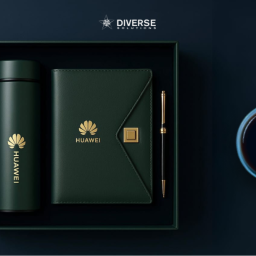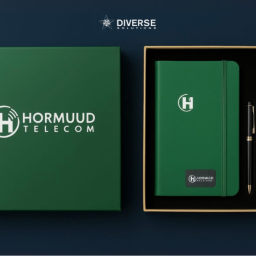
Corporate gifts are a way to express gratitude and build professional rapport, but they can also create an unintentional bias, especially when they are of high value. These gifts may influence decisions or make recipients feel obligated to reciprocate, which can compromise fairness and impartiality. To understand the risks associated with high-value corporate gifts, it’s essential to look at the psychology behind gifting, ethical implications, and the steps companies can take to reduce bias.
The Psychology of Gifting
Corporate gifting isn’t just about giving an object; it’s rooted in psychology. Here are some ways that the psychology of gifting can influence behavior and create potential biases:
Reciprocity Principle
One of the most influential aspects of gift-giving is the reciprocity principle. According to psychologist Robert Cialdini, people feel a strong urge to return favors when they receive a gift, even if they didn’t ask for it (Cialdini, 2001). This principle, deeply rooted in human behavior, actively shapes how people make business decisions. For example, when a company gives a high-value gift to a potential client or partner, the recipient often feels an unspoken obligation to respond favorably—even if the company doesn’t explicitly expect it. This pressure can skew judgment and create unintended bias.
Perception of value
The perception of value also plays a significant role in how gifts are received. A gift’s worth can shape the recipient’s view of the giver and influence how they perceive the relationship. High-value gifts often signal prestige, exclusivity, or power, potentially impacting decisions or loyalty. In addition, studies in organizational behavior show that individuals often subconsciously place greater importance on relationships where they exchange high-value items, potentially creating a conflict of interest.
Cognitive bias
Gifts can lead to cognitive bias, where the recipient’s judgment is unintentionally influenced by the giver. For instance, confirmation bias may cause a recipient to seek information that supports positive impressions of the giver, leading them to view the giver’s proposals or offers more favorably than others. Cognitive bias like this can cloud objectivity, especially if the gift is perceived as overly generous or luxurious.

Ethical Considerations of High-Value Gifting
Corporate gifts have ethical implications, particularly when they come with a high price tag. High-value gifts may unintentionally breach ethical standards, leading to potential conflicts of interest, regulatory issues, and a lack of impartiality.
Fairness and impartiality
High-value gifts can impact fairness and impartiality in business relationships. When a gift is expensive, it may create an imbalance, leading the recipient to favor one company or individual over others. This becomes problematic in scenarios that require impartial decision-making, such as contract negotiations, supplier selections, or job promotions.
Conflict of interest
Receiving a significant gift can create a conflict of interest for the recipient, especially if they are in a position of authority or influence. The perception that a person is being influenced by a gift can damage credibility and even harm the company’s reputation. A conflict of interest may arise if the recipient feels inclined to make decisions that benefit the giver, rather than making objective decisions based solely on the merits of a proposal or partnership.
Regulatory compliance
Many industries have strict regulations on corporate gifting to prevent undue influence and bias. For example, the financial services and healthcare sectors often enforce strict limits on gift value and may require disclosure of gifts. According to a report in Ethics and Compliance Initiative Journal, failing to comply with regulatory standards for gifting can result in fines, legal repercussions, or damage to the company’s reputation. As a result, companies should be aware of these regulations and ensure that their gifting practices remain within legal and ethical boundaries to prevent potential conflicts and compliance issues.
Best Practices for Ethical Corporate Gifting
To avoid the risks associated with high-value corporate gifts, companies can adopt best practices that promote transparency, fairness, and impartiality.
Set clear guidelines
One of the best ways to ensure ethical gifting is to establish clear guidelines. Set specific policies on the types of gifts allowed, acceptable value limits, and appropriate timing for giving gifts. By creating guidelines, companies can help employees understand what is considered appropriate and what crosses the line.
Limit the value of gifts
Limiting the monetary value of gifts can help mitigate the influence they might have on recipients. Setting a cap on gift value reduces the likelihood of a gift creating an unintended obligation or bias. According to Business Ethics Quarterly, gifts under a certain amount are less likely to impact decision-making or create conflict of interest. Many companies set a maximum value for gifts, such as $50 or $100, depending on industry standards and regulations.
Transparency and disclosure
Being transparent about gifting practices helps to build trust and avoid misunderstandings. Some companies require employees to disclose any gift received over a certain value. Employees can disclose gifts by logging them in a registry, notifying managers, or returning those deemed too valuable. Furthermore, transparency holds employees accountable for their gifting decisions and helps build an ethical company culture.
Focus on the relationship
Instead of giving high-value gifts, companies can consider focusing on the relationship. Low-cost, personalized gifts can be just as effective in building connections without the risk of creating bias. Gestures like handwritten notes, professional development opportunities, or hosting events for clients can strengthen relationships while maintaining ethical standards.
Consider alternative forms of appreciation
There are many ways to show appreciation without using material gifts. Recognizing achievements, providing team-building opportunities, or offering verbal praise can be meaningful and free of ethical complications. These alternatives encourage a positive work culture and help build rapport without the need for expensive items.

Final Thoughts
While corporate gifting can be an effective way to show appreciation and build relationships, high-value gifts can introduce bias and ethical concerns. By understanding the psychology of gifting, companies can take proactive steps to avoid unintended influence and maintain a transparent, ethical approach. Moreover, adopting best practices like setting clear guidelines, limiting gift value, promoting transparency, and considering non-material alternatives can help companies navigate the complex world of corporate gifting responsibly.
For more insights on corporate gifting strategies and to explore a wide range of customizable eco-friendly options, visit Diverse Solutions.
















